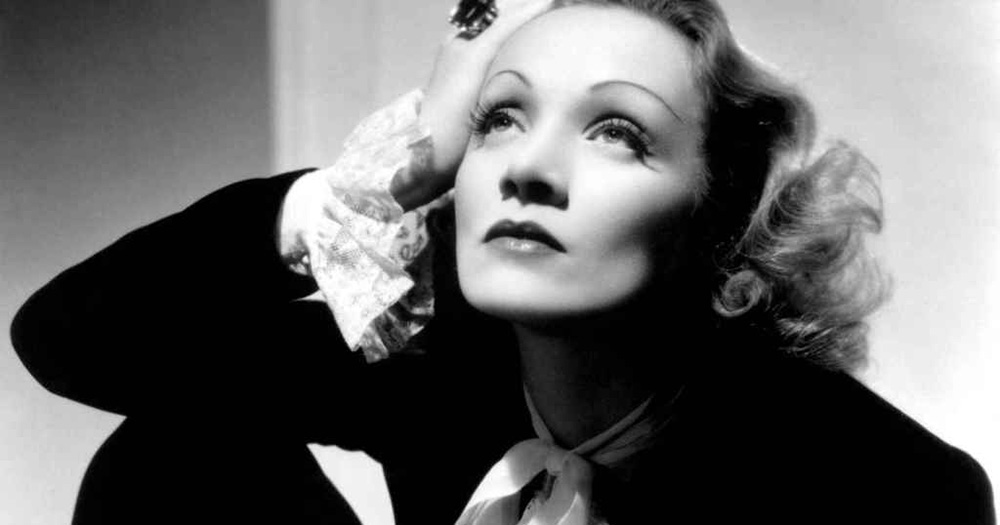Born in 1901, Marlene Dietrich would go on to lead a glamorous life as a Hollywood star, LGBTQ+ icon and activist. Often seen on-screen playing with gender roles and androgyny, she was known for her fashion sense, her help in the American war efforts during the Second World War and her relationships with both men and women.
In a decade-long career that spanned from silent cinema to the stage, she became known for her diverse portrayal of women. Being one of the first women to kiss another woman on screen, Marlene Dietrich made film history as well as LGBTQ+ history.
Her role as Lola-Lola, a cabaret singer, in Josef von Sternberg’s production of The Blue Angel lead to her international breakthrough and brought her to Hollywood. There she went on to star in significant movies like Morocco, released in 1930, and Shanghai Express, released in 1932. Quickly becoming one of Hollywood’s best-payed actresses, she upheld the image of being glamorous and a little mysterious, with her personal life being kept mostly private.
Marlene Dietrich in a publicity still for Morocco (1930) pic.twitter.com/pJYoQxElXb
— Old Hollywood (@TheOldHollywood) May 1, 2023
In 1923, Dietrich married Rudolf Sieber, who would later become assistant director of Paramount Pictures in France. The actress, however, had many affairs with both men and women, which included the likes of Gary Cooper, Suzanne Baulé and the writer Erich Maria Remarque.
Her husband, to whom she remained married, reportedly knew of her affairs, some of which were short-lived and some of which lasted decades, and he appears to have had a mistress himself.
Dietrich also coined the phrase “sowing circle”, which in old Hollywood used to refer to groups of queer women that knew of each other and were able to share experiences. Marlene’s ‘sowing circle’ is said to have included people like Ann Warner, wife of Jack L. Warner, owner of the Warner Studios, Dolores del Río and Claudette Colbert, who Marlene called the most beautiful woman in Hollywood.
#hildegardknef i #marlenedietrich pic.twitter.com/80sZloXbSl
— PauAlex (@paualex4) May 4, 2023
Unconventional as ever, the German-born actress enjoyed Berlin’s gay bars and drag balls while growing up. Here she also began challenging traditional gender norms and took up boxing as soon as a studio opened its doors to women in the late 1920s.
When the Nazi party came into power, Dietrich went on to renounce her German citizenship and helped to create a fund that would allow Jews and German dissidents to flee.
After the war, the actress went on a tour throughout Europe and is to this day regarded as an icon not only in the film world but also for defying the conventional norms of her time.
© 2023 GCN (Gay Community News). All rights reserved.
Support GCN
GCN is a free, vital resource for Ireland’s LGBTQ+ community since 1988.
GCN is a trading name of National LGBT Federation CLG, a registered charity - Charity Number: 20034580.
GCN relies on the generous support of the community and allies to sustain the crucial work that we do. Producing GCN is costly, and, in an industry which has been hugely impacted by rising costs, we need your support to help sustain and grow this vital resource.
Supporting GCN for as little as €1.99 per month will help us continue our work as Ireland’s free, independent LGBTQ+ media.

comments. Please sign in to comment.